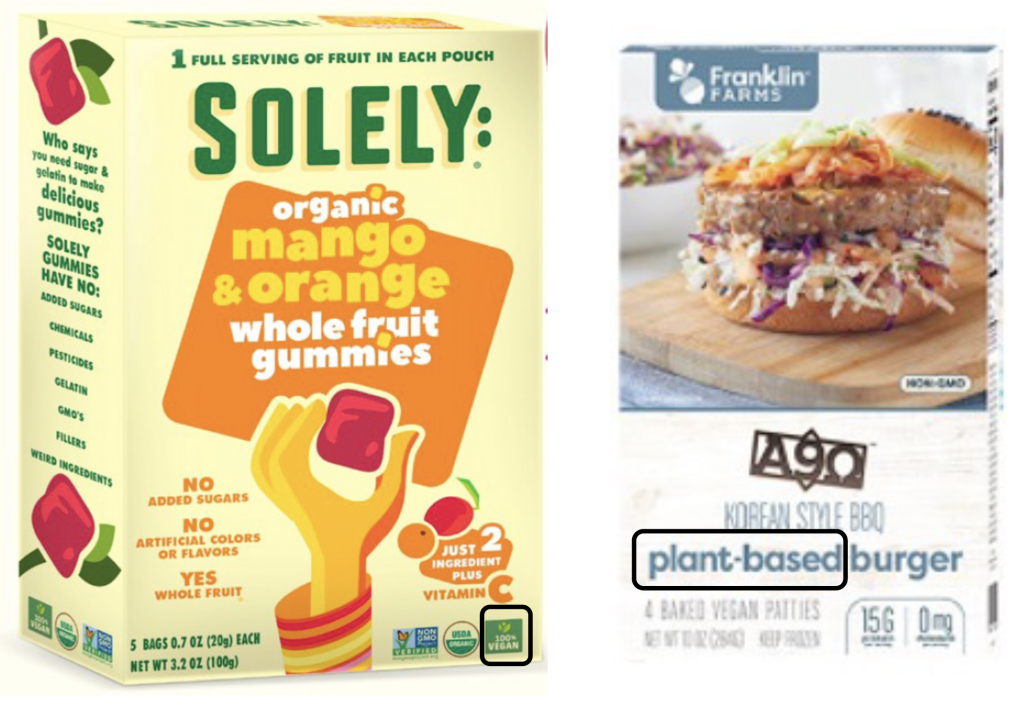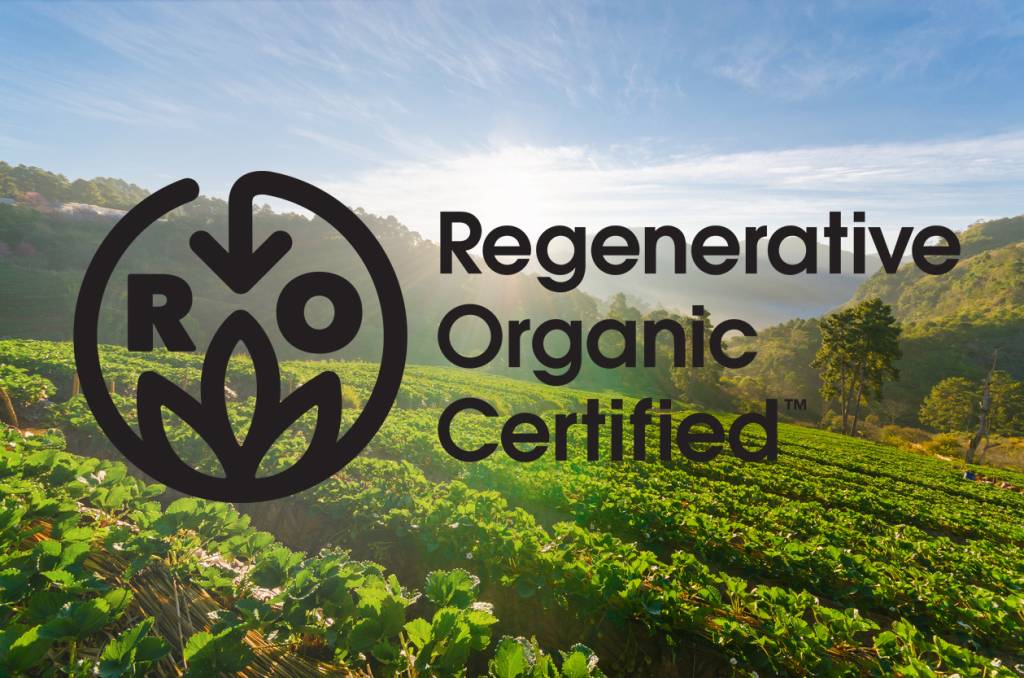The food market evolves with the living standards and expectations of our societies. The issue is no longer availability, quality, or price. Instead, consumers want to know more about what they eat because they want their food to match their lifestyles and values.
Animal welfare. For example, more and more consumers care about animal welfare. In the United States, products merely labelled “Animal Welfare” saw their sales rise by 16,9% in 2020 to reach $1.8 billion in revenue. So far, no legislation regulates “Animal Welfare” labels in the United States and Europe.
Meanwhile, some other products are already certified “humane” by an association. See the eggs from Consider Pastures, below:

Certified products are booming because they help younger generations – namely Millennials and Gen Z – make their consumer choices. They continue to favour brands and products that do good. Two labels have harnessed the power of certification: B-Corp and Vegan.
B-Corp. In the United States, certified B-Corporations meet the highest verified and environmental performance standards, public transparency, and legal accountability to balance profit and purpose. In 2020, B-Corp certified products have seen double-digit increases in their sales: +16% in beverages (vs +11% average) and +21% in pantry staples (vs +10% average).
B-Corp certified products used to be a mere emerging trend. Today, it is accelerating and driving consumer choices. This new label build on a global cultural shift redefining business success in more inclusive and sustainable terms. Some analysts thus anticipate a B-Corp certification could become a competitive edge for companies to recruit and retain high-potential professionals. B-Corp certification is more demanding than the French equivalent “entreprise à mission”.
Vegan. Vegan products have also become an identity marker for consumers. Buying vegan makes you part of a community of people who respect animal welfare, human health and the planet. In other words, it is what you do not eat that defines you. Besides, younger consumers are more radical and prefer the bold commitments of certified products versus products with marketing claims.
That could be the explanation for the recent change in market shares for vegan-labelled versus mere “plant-based” positioned products. With a 14% rise in sales in 2020, vegan products generated double the revenues of “plant-based products”.
Samples of vegan and plant-based products:

Today, the new certification emerging on the block is “regenerative organic agriculture”. It could accelerate fast. So, where did this new label come from?

New organic. As you may recall, organic certification in the United States has been suffering from fraud and abuse in recent years. As a result, the U.S. Department of Agriculture has developed a new label that is even more demanding and meaningful: regenerative organic agriculture. These new certified products help to preserve the regenerative capacity of farming lands.
Regenerative agriculture is a conservation and rehabilitation approach to food and farming systems. It treats healthy soil as the foundation of good farming while taking good care of the farmers, farmworkers and farm animals who work and live on the land. Proponents of regenerative agriculture utilize various sustainable agriculture techniques in combination. Best practices include topsoil regeneration, increasing biodiversity, compost, water cycle management, biosequestration, climate change resilience, and strengthening farm soil’s health and vitality. On small farms, regenerative agriculture includes permaculture, agroecology, or agroforestry.
This new label is very effective. It has enabled two purpose-led companies, such as Patagonia and DrBronner’s, to develop product range extensions that defy marketing laws. Both companies are now new players in the food business.
DrBronner’s is a family B-Corp certified business that offers organic, natural and fair-trade personal and home care products. In 2021, they announced the launch of six chocolate bars, which are vegan and coconut sugar-sweetened:
DrBronner’s has paired Swiss chocolatiers with fairly treated cocoa farmers, who in Ghana or the Ivory Coast follow the principles of regenerative organic agriculture to produce the chocolate bars.
Patagonia. Patagonia is a B-Corp climate change activist company that can go as far as inviting you not to buy a new Patagonia vest. Instead, they encourage you to repair it or buy a second-hand one. At Natural Products Expo West 2019, Patagonia announced the launch of Patagonia Provisions, a food range covering many different product categories (beverages, breakfast grains, snacks, and seafood). As an advocate of regenerative agriculture, Patagonia Provisions has all its products labelled “ROC” or regenerative organic certified (by the USDA).